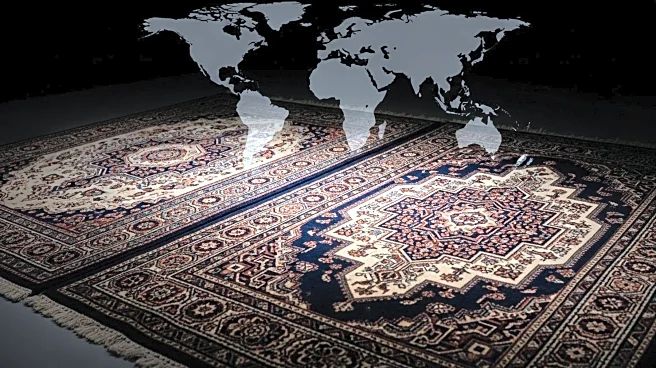What is the story about?
What's Happening?
The Taliban government in Afghanistan, four years into its second tenure, has been recognized by Russia, while other countries are cautiously engaging with the regime. Despite not officially recognizing the Taliban, nations like Germany have accredited Taliban officials for consular roles, reflecting a pragmatic approach to dealing with the regime. President Trump has indicated efforts to regain control of Afghanistan's Bagram air base, suggesting strategic interests in the region. The Taliban's diplomatic outreach is seen as a strategic victory, although their hard-line policies on women's rights continue to limit broader international engagement.
Why It's Important?
The Taliban's growing diplomatic engagement signifies a shift in international relations, as countries balance strategic interests with human rights concerns. The Taliban's cooperation is crucial for managing migration and counterterrorism, particularly against ISIS-K. This engagement could impact U.S. foreign policy and security strategies, as well as influence European immigration policies amid rising anti-immigrant sentiments. The Taliban's ability to negotiate with countries like China and Russia could alter geopolitical dynamics, affecting U.S. influence in the region.
What's Next?
Future diplomatic interactions may focus on humanitarian aid and migration management, with countries cautiously navigating the Taliban's hard-line policies. The U.S. may continue counterterrorism cooperation while addressing hostage situations. European countries might face pressure to deport Afghan migrants, requiring Taliban approval. The Taliban's quest for formal recognition remains uncertain, with potential implications for unlocking frozen assets and participating in international forums.
Beyond the Headlines
The Taliban's diplomatic efforts highlight ethical dilemmas for countries balancing human rights with strategic interests. The regime's hard-line stance on women's rights poses challenges for Western governments advocating for civil liberties. The Taliban's control over Afghan consulates in Europe raises concerns about data privacy and the potential misuse of biometric information. These developments could influence long-term shifts in international diplomacy and human rights advocacy.

















